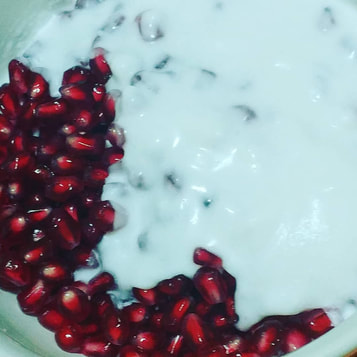|
With this one I’ll get right to the point- No.
All probiotics are definitely not created equal, and how can they be with so many strains and different species of bacteria and yet, there is a lot of variety out on the market when it comes to probiotic supplements and even foods that contain live bacterial cultures. When it comes to food choices you have things like yogurt, kombucha, kefir, sauerkraut, etc. All great choices as food grade probiotics, I personally like coconut milk kefir, not only because it’s dairy free and I make it myself and it tastes delicious, but because of how it makes me feel. However, I want to shed some light on probiotic supplements because let’s face it, when you need it, you need it! Interestingly, when I started my career in the nutraceutical industry what was boasted as the ‘best’ at the time was to look for probiotics on the market with many different strains, in fact the more strains the better! When it came to the bacteria count, again the more the better. You see as high as 100 billion count with more that 8, 10, 15+ strains on the market, so is more really better? What if I told you the probiotics I’ve had the most success with, both using myself and recommending to others with tremendous success had no more that 2-3 strains! Crazy I know! That is because I don’t quite frankly care about the quantity of what I’m getting, rather, I care about performance. I care about what specific strains do in the gut, can they even last in the gut? Do they cancel each other out in the gut? And if I’m taking in a probiotic that has a rainbow of strains, how do we know they’re actually not competing with each other? Remember this is live bacteria we are talking about. For example, let’s look at the three strains Bacillus mesentericus, Clostridium butyricum and Streptococcus faecalis, these three strains have been actually studied together for over 60 years in Japan, and they found that not only did they not cancel each other out, they actually boost each other, ‘they play well in the sand box’ to put in other words. That is called a symbiotic relationship. Not only are they extremely effective, but they actually inhibit bad bacterial growth, which is something we need to really consider when shopping for probiotics, how do you know the components in there aren’t feeding the bad guys?! Scary I know… Look for probiotics that have the strains studied together, not apart, and remember that more does not always necessarily mean better. If you are unsure what probiotics are best for your pet at their current stage in their health and wellness journey, come see us, we would be happy to discuss bacteria with you! The good that is ;)
1 Comment
12/24/2020 01:16:27 am
It is great blog post. I am Always read your blog. Helpful and Informative blog. Thanks for sharing these information with us.
Reply
Leave a Reply. |
AuthorLucy is an avid pet mom; with dogs, cats, goats and horses to keep her busy! All of her pet 'kids' are fed a species appropriate diet with proper supplementation so she can watch them thrive. Her expertise and experience lie in nutraceutical supplementation and is a health advocate for proper diet and nutrition. Her other passions in life are schutzhund and equestrian riding. Archives
July 2024
Categories |



 RSS Feed
RSS Feed